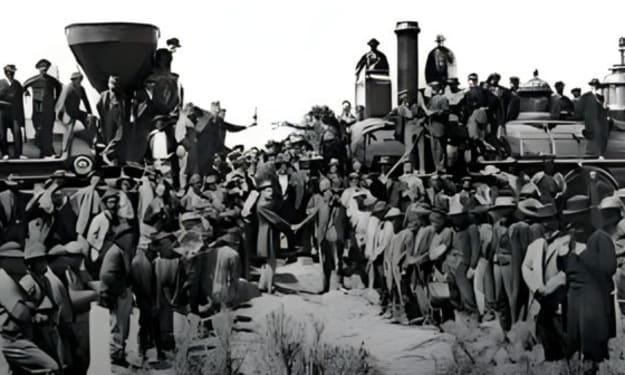The Reconstruction Era: A Struggle for Unity and Equality in Post-Civil War America
Fifth important topic of USA

Title: The Reconstruction Era: A Struggle for Unity and Equality in Post-Civil War America
Introduction
The Reconstruction Era stands as a pivotal period in American history, encompassing the years from 1865 to 1877. It emerged as a response to the devastating consequences of the Civil War, aiming to rebuild the nation, redefine the status of formerly enslaved African Americans, and reconcile the divided states. This article explores the historical context, key initiatives, and the complex legacy of the Reconstruction Era in shaping the future of the United States.
Context: Healing a Divided Nation
The conclusion of the Civil War in 1865 left the United States deeply scarred, both physically and emotionally. The nation grappled with the immense task of reintegrating the Confederate states, establishing a new political and economic order in the South, and addressing the rights and citizenship of millions of freed African Americans. The Reconstruction Era sought to address these challenges by implementing various political, social, and economic reforms.
Key Initiatives of Reconstruction
1. Presidential Reconstruction: Initially, under President Abraham Lincoln's plan, known as Presidential Reconstruction, efforts were made to swiftly reintegrate the Confederate states into the Union. This approach aimed to grant amnesty to former Confederates who took an oath of loyalty and establish state governments. However, Lincoln's assassination in 1865 led to a more lenient policy under President Andrew Johnson, which allowed former Confederate leaders to regain power, undermining the rights of African Americans.
2. Radical Reconstruction: Dissatisfied with the slow progress and lack of protection for freed slaves, Radical Republicans in Congress took charge of Reconstruction in 1867. They enacted the Reconstruction Acts, which divided the South into military districts, required states to draft new constitutions granting voting rights to African American men, and demanded ratification of the Fourteenth and Fifteenth Amendments, guaranteeing equal protection under the law and suffrage to African Americans.
3. Freedmen's Bureau: Established in 1865, the Freedmen's Bureau provided assistance to newly freed African Americans by offering education, employment opportunities, and legal support. It played a crucial role in facilitating the transition from slavery to freedom, although its effectiveness varied across different regions.
Challenges and Resistance
Reconstruction faced numerous challenges and encountered fierce resistance from white Southerners who resented the social, political, and economic changes. The emergence of white supremacist groups, such as the Ku Klux Klan, targeted African Americans and their white allies through acts of violence, intimidation, and voter suppression. The violence and racial animosity made it increasingly difficult to enforce the Reconstruction policies and protect the rights of African Americans.
Legacy and Impact
The Reconstruction Era witnessed both progress and setbacks in the pursuit of racial equality and social justice. It marked the first time that African Americans held political offices at the state and federal levels, and the creation of public schools for both black and white children. The ratification of the Thirteenth, Fourteenth, and Fifteenth Amendments laid the foundation for civil rights advancements in the 20th century.
However, the era's promise of equality was short-lived. As Reconstruction ended in 1877, a new era of racial segregation and discrimination emerged in the South, known as the Jim Crow era. The Compromise of 1877, which resulted in the withdrawal of federal troops from the South, effectively abandoned the cause of Reconstruction and left African Americans vulnerable to disenfranchisement and systemic racism for decades to come.
Conclusion
The Reconstruction Era was a critical chapter in American history, representing a time of immense challenges and transformative aspirations. Despite its ultimate failure to bring lasting equality, the era's efforts to rebuild and redefine the nation left a profound impact on the struggle for civil rights in the United States. Understanding this complex and often overlooked period is essential for comprehending the ongoing fight for racial justice and equality in America today.
About the Creator
Enjoyed the story? Support the Creator.
Subscribe for free to receive all their stories in your feed. You could also pledge your support or give them a one-off tip, letting them know you appreciate their work.





Comments
There are no comments for this story
Be the first to respond and start the conversation.